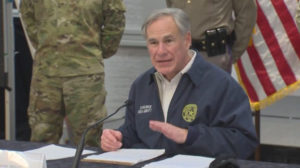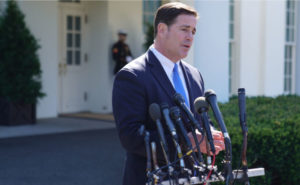Rep. Jasmine Crockett, a Democrat from Texas, sharply criticized Governor Greg Abbott’s recent policy proposal, characterizing it as essentially condoning violence against migrants seeking entry into Texas. During an MSNBC interview, Crockett characterized Abbott’s move as akin to saying, “‘Hey, we’re going to kill people that are trying to come in.'”
The signed law, Senate Bill 4, grants Texas law enforcement the authority to arrest migrants crossing the border illegally. Governor Abbott emphasized the law’s aim to halt what he termed a “tidal wave of illegal entry into Texas.” Once detained, migrants are given a choice: either comply with a Texas judge’s order to leave the U.S. voluntarily or face misdemeanor charges for illegal entry. Continued non-compliance could lead to subsequent arrest on more severe felony charges.
Abbott’s proactive stance on immigration enforcement is a marked departure from the federal government’s handling of the border crisis, which he has consistently criticized. Notably, Texas has taken the initiative to transport over 65,000 migrants to various cities across America and installed razor wire along the Rio Grande’s banks.
Anticipated legal challenges loom over the law as immigration enforcement traditionally falls within the federal government’s purview. Critics have lambasted the legislation, drawing parallels to a 2010 Arizona law, largely nullified by the U.S. Supreme Court, that was infamous for its “Show Me Your Papers” provision.
The measure drew rebuke not just from domestic critics but also from international quarters. Thirty former U.S. immigration judges, representing both Republican and Democratic administrations, decried the law as unconstitutional. Additionally, Mexico strongly opposed the law’s provisions that would potentially deport individuals, including non-Mexican nationals, to Mexican soil, a move contradictory to bilateral agreements.
The White House criticized the law as “extreme,” contending it would compromise community safety in Texas. They emphasized the federal government’s responsibility in determining the procedures for removing noncitizens found in violation of immigration laws.
As border encounters surged to record-breaking levels, topping 2.4 million in Fiscal Year 2023, debates over border resources and strategies intensified. However, the impasse over funding persists, with Republicans pressing for stringent asylum restrictions and parole use, a stance met with resistance by certain Democrats. This political deadlock has stalled additional resources and support at the border.





